Below are the 7 areas of Learning and Development.
Prime areas
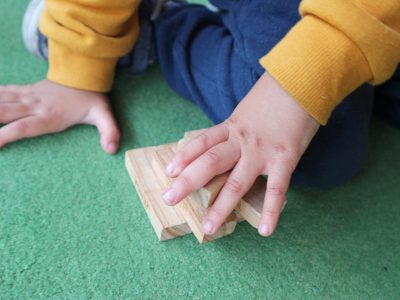 Personal, Social and Emotional Development (PSE)
Personal, Social and Emotional Development (PSE)
Help children to develop self confidence and a positive sense of community, respect and social skills
Communication and Language Development (CL)
Help your child develop their speaking, attention and understanding skills
Physical Development (PD)
Opportunities for children to be active and interactive and to improve their skills of coordination, control, manipulation and movement.
Specific areas
Mathematics (M)
Opportunities develop their mathematical thinking, problem solving, calculating and shape and space awareness
Literacy (LIT)
Ideas to develop their love of reading and writing and their skills in this area
Understanding the World (UW)
Opportunities to use different tools safely, to encounter creatures, people, plants and objects in their natural environments and real life situations.
Expressive Arts and Design (EAD)
Children’s creativity must be extended by the provision of support for their curiosity, exploration and play.
Please click on the titles below to find out more.
This is a ’prime’ area of the EYFS: developing quickly in response to relationships and experiences. It is fundamental to support development in all other areas.
There are 3 aspects to Personal, Social and Emotional Development
- Making relationships
- Self-confidence and self-awareness
- Managing Feelings and behaviour
Whilst we acknowledge that every starting point will be different staff ensure experiences, activities and issues that arise are managed so children can work towards the following outcomes:
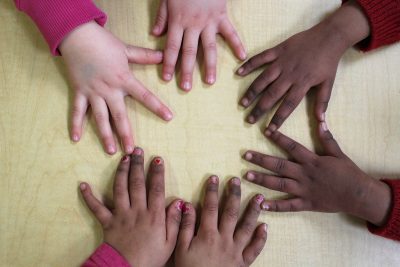 Making Relationships
Making Relationships
- We plan opportunities and support spontaneous activity for children to:
- Develop co-operative play and learn how to take turns with others;
- Be aware that other people have needs and feelings and these may be different from their own;
- Form positive relationships with adults and other children.
Self-confidence and self-awareness
- We plan opportunities and support
- spontaneous activity for children to:
- Try new activities with confidence;
- Say why they prefer some activities more than others;
- Be confident to speak in a familiar group;
- Talk confidently about their own ideas;
Choose resources they need for their chosen activities; - Say when they do or don’t need help.
Managing Feelings and behaviour
- We plan opportunities and support spontaneous activity for children to:
- Talk about how they and others show feelings;
- Talk about their own and other’s behaviour, and its consequences, and know that some behaviour is unacceptable;
- Work as part of a group by understanding and following the rules;
- Adjust their behaviour for different situations and take changes of routine in their stride.
Communication and language is a foundation life skill.
Listening and Attention
Listening is a form of communication. It is a vital skill for children that involves hearing, interpreting and constructing meanings.
Children need to develop listening skills to help them to participate in daily routines, develop more forms of communication with others and be part of wider decision making processes.
At nursery, we will help your child to develop these listening skills by modelling listening and attention, and encourage them to use these skills in a range of situations. Small language groups, communication groups and other appropriate intervention groups such as music or boys group, give those children in the early stages of listening more intensive opportunities to develop the skill.
At home, you could share stories and rhymes with your children, model thoughtful listening and responding, and encourage them to follow some simple instructions.
Speaking
The early years are a critical period for children’s speech, language and communication which in turn underpin many of the other areas of children’s development.
Being able to speak clearly and process speech sounds, to understand others, to express ideas and interact with others are fundamental building blocks for a child’s development.
At nursery, the value of speech is threaded throughout the practice. Staff will model high quality speech to children; asking inquisitive questions, commenting on the interesting things that children do and reading and singing a whole range of books, rhymes and songs.
Some children may need extra support with their language development whilst they are at nursery; this may be due to having English as an additional language, a speech delay or disorder. We run a number of Box Clever groups and communication groups daily to help these children. There may also be some children who need alternative communication strategies throughout the session; such as picture cards, big macs and visual timetables which the nursery supports them with.
At home, create an atmosphere that is talk friendly. Talk to your child as much as you can about what you notice, what you are doing, and what they are doing. It is vital that you value their talk back; give them time to respond to you, be positive about their talk and encourage them to talk as much as you can.
Physical development involves providing opportunities for young children to be active and interactive; and to develop their coordination, control, and movement. Children must also be helped to understand the importance of physical activity, and to make healthy choices in relation to food.
There are two aspects to Physical Development
- Moving and handling
- Health and self-care
We firmly believe that experience gained during physical activity promotes brain development as well as strengthening muscles and the cardiovascular system. Children first experience the world through their bodies.
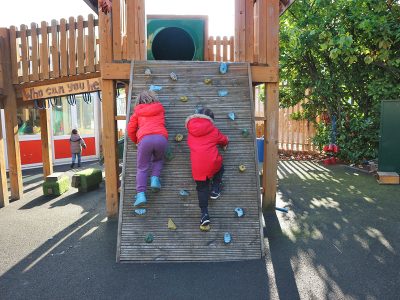 Moving and Handling
Moving and Handling
- Describes the importance of gross and fine motor skills. Being able to explore through movement enables a child to make a mental map of their surroundings.
- Large muscle control develops before fine motor skill. Exploring through large muscle activity develops all the skills later refined and used for writing. Young children develop greater awareness of concepts by physically interacting than by only observing or through formal instruction.
Health and self-care
- Supports young children to be healthy and stay safe. Engaging in physical play, having a balanced diet, and learning about healthy eating helps children learn about their bodies and staying safe.
- We provide good opportunities for energetic play, quiet contemplation, and relaxation. This develops an understanding of how activity, diet, sleep and hygiene are vital to life.
The development of physical skills increases independence as children begin to manage themselves. - We believe that play in a challenging and safe environment allows children to take risks and develop an awareness of how to keep themselves safe as they play
The relationship between Physical Development and the curriculum
- Physical development is closely related to other areas of the curriculum. Before a child can learn to write there are several motor skills that need to be developed to enable secure development in this area.
- Emotionally secure and safe children are confident to expand their physical boundaries.
- Physically able children can explore dance and creative expression as a way of interpreting the world
Mathematics
- Mathematics is part of our everyday lives at home, at school and in the world around us.
- Children have a natural curiosity about what is around them and this includes the mathematical.
- Mathematical development is divided into two areas Number and Shape, space and measure within the Early Years Foundation Stage.
At RONEC
- Children explore mathematical concepts through adult and child led activities;
- Counting, matching, sorting, shape, pattern and lots more across the whole of the nursery.
- Sand, water and dough play support measuring, weighing and problem solving.
- Role-play and small world themes that allow children to act out their own experiences and knowledge of the world around them.
- We encourage children to think about what they are doing by asking open-ended questions such as: What would happen if? I wonder why? Why do you think that? What can we say about it?
Numeracy
We provide opportunities for counting and number recognition through hands on experiences, core number songs and rhymes, stories, role-play such as the `shoe shop’ or ‘supermarket’ and walks within the local environment. We aim to develop an awareness of numbers in the environment and encourage children to use it in their play. We encourage the children to explore quantities and one to one correspondence through a range of activities such as, exploring collections of objects, laying places for a teddies bears picnic, or helping to count the amount of bowls needed for snack.
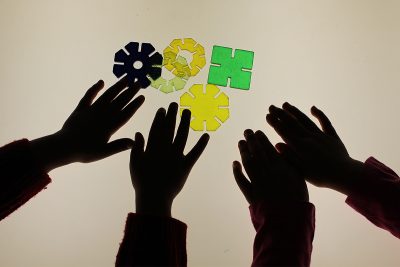 Shape, space and measure
Shape, space and measure
We also provide opportunities for categorising and identifying shapes and objects, through the use of activities such as shape walks around the local environment, puzzles, construction kits, maths related equipment and everyday objects. We provide a range of experiences that allow children to develop problems solving skills and such as, finding the right shape or object for a task or using construction materials in order to build for a specific purpose.
At home
- Through practical everyday situations and hands on experience you can encourage your child to enjoy mathematical concepts, for example counting out and matching cutlery at meal times, putting on shoes, socks, clothing – matching one sock, two socks, the same.
- Singing number songs, sharing number rhymes and stories.
- Cooking, shopping, trips in the environment looking at number plates, cars and more!
- Using mathematical language such as big, huge, massive and enormous.
Let’s Pretend
- Young children sometimes are unable to make a start on something because they do not want to be wrong.
- Pretend we are going to count these shells – where shall we start?
WHEN WE PRETEND WE DO NOT HAVE TO BE AFRAID OF BEING WRONG!
Language of Mathematics
Counting using one, two, three and then gradually extending the numbers used is important, however mathematicians need a wide ranging vocabulary – here is a small selection:
| Big – bigger, small – smaller More – less, a few – a lot Up – down, high – low Back – front, middle – in between Under – Over, in front – behind |
First – last, over – under On top – below, high – low Fast – slow, before – after – now Heavy – heavier, light – lighter Wide – narrow, straight – curvy |
Literacy skills provide a child with the building blocks necessary for reading and writing and learning more generally.
Reading
Being exposed to range of print throughout their early years will help children to develop their listening, speaking and reading skills.
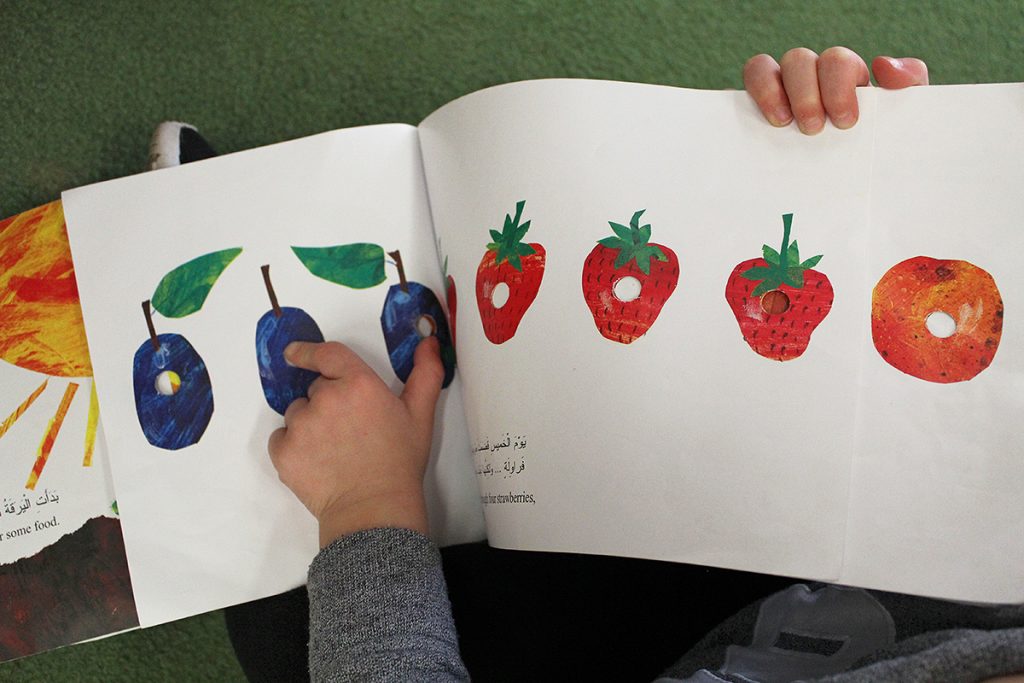 Initially children will begin to show attention to songs, rhymes and stories. They will then show interest in the print and illustrations, and want to enjoy them. Gradually children use this knowledge of texts to retell stories, create their own stories and enjoy more and more different types of stories, songs and rhythms.
Initially children will begin to show attention to songs, rhymes and stories. They will then show interest in the print and illustrations, and want to enjoy them. Gradually children use this knowledge of texts to retell stories, create their own stories and enjoy more and more different types of stories, songs and rhythms.
In nursery we use the Letters and Sounds program to help children to develop the pre-phonics skills that will help them to read words when they are developmentally ready. This helps children to develop their listening skills through the exploration of sound, develop rhyme and alliteration and basic blending and segmenting skills.
Alongside this, we foster a core book approach to help children to expose children to varied vocabulary and help them to enjoy books. We share each core book daily for around 2-3 weeks to immerse the children in repeated language patterns and sometimes link them to provision in the nursery.
Some children may find it more difficult to listen to a story from a book; so we provide them with a range of sensory stories and props to help them experience story telling.
At home, you can share stories with your child every day; reading them from a book, retelling them from your memory or making them up. Encourage children to listen carefully, look closely at illustrations and join in or make up their own stories.
Writing
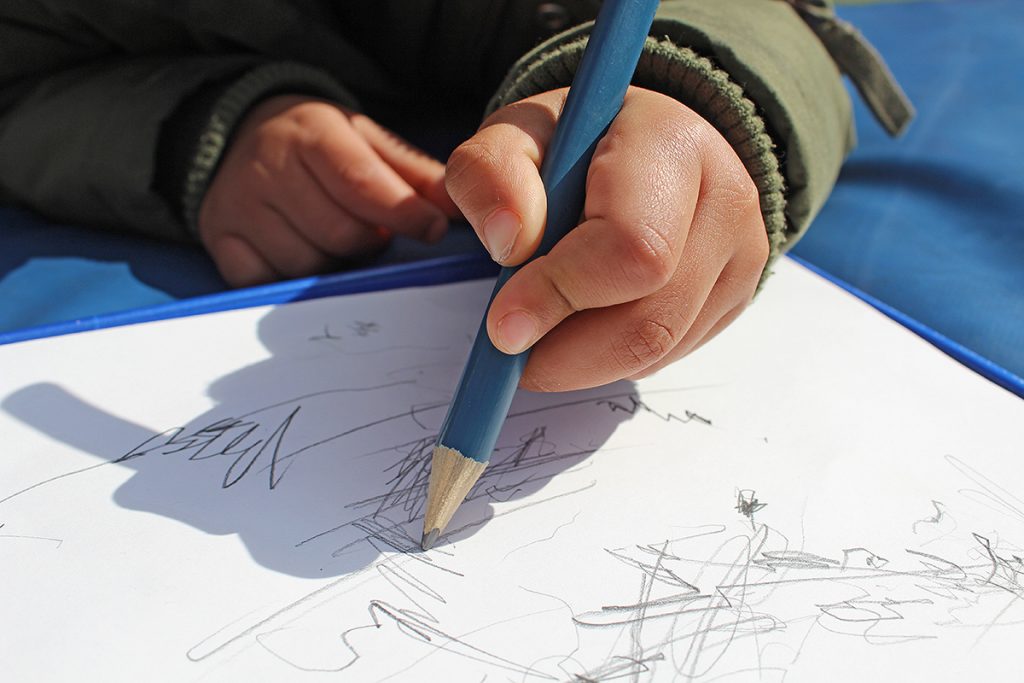 Making marks is a form of physical expression for children from a very young age; this is preparation for children to become confident writers as they develop.
Making marks is a form of physical expression for children from a very young age; this is preparation for children to become confident writers as they develop.
Children will initially explore paints, pens and chalks to create marks on lots of different surfaces, and in lots of different positions. Expression through these forms of media continues throughout the early years, but children begin to show a preference for a dominant hand, and begin to make more intricate marks. These marks will carry meaning for the children. As children continue to develop, they may start to link their knowledge of letters in print and represent these in their marks; gradually building towards more formed marks and letters.
In nursery, we provide all children with a range of materials to explore their mark making throughout the provision; from paints and chalks large scale on the floor to pencils and pens on small scale paper. A print rich environment alongside lots of encouragement to try, helps children to be confident mark makers and develop at their own pace.
At home, you can help children to love writing. Encourage them to write for a purpose, whether this is a shopping list with you, or a letter to someone special. Value the ‘scribbles’ that the children initially create, and over time they will begin to become interested in the letters that are in their name or that they see you write and will try to recreate them.
This curriculum area covers a lot of learning which will lead on to more traditionally recognised subject areas including: Science, Design and Technology, History, Geography and Citizenship. For young children in the “foundation stage” U.W is split into 6 strands – see below.
It is about learning to make sense of the world. Children need lots of opportunities to use different tools safely, to encounter creatures, people, plants and objects in their natural environments and real life situations, to “experiment” and to work with different materials.
Exploration and Investigation
- How children learn about things like materials (sand, water, dough etc) and objects (magnets, kites, balls etc) finding out what they are like and what they do.
- How they notice changes, patterns and similarities (bread>toast, wheels roll etc).
- How they test and question to find out how and why things work
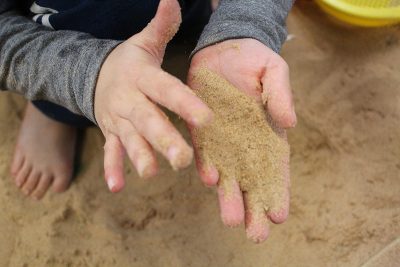 Designing and Making
Designing and Making
- How children learn about making things
- How they use construction toys like blocks and Duplo to build and balance.
- How they learn to use materials and tools like scissors, glue, tape, paper, wood, saws or nails to fix and make things.
- How they learn to work safely and imaginatively.
ICT
- How children learn about and use simple information technology (camera, TV, radio, CD’s, recorders etc), computers and programmable toys (robots).
- How children learn about cause and effect using electronic toys and buttons (torch, remote control, remote control toys etc).
Time
- How children remember past events and anticipate future events in their own lives and those of their families.
- How they begin to use words to describe time and seasons (Monday, yesterday, tomorrow, summer etc).
- How they begin to notice how things grow and change over time (babies, plants, food etc).
Place
- How children experience and learn about the natural world.
- How they find out about their local area and think about what they like or dislike about it.
- How they explore and learn about the world they live in by going on trips and holidays or looking at pictures or maps.
Communities
- How children begin to be aware of how people have similarities and differences in a diverse society.
- How they experience different cultures, faiths and celebrations.
- How they learn abut what people do, their jobs and responsibilities.
Exploring and Using Media and Materials
0-20 Months and 16-26 months
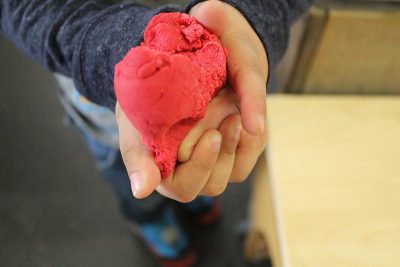 To begin with I explore and experiment using a range of media through using my senses and my whole body. I can imitate and improvise actions that I have observed e.g. clapping and waving. I will move my body to sounds that I enjoy, such as music or a regular beat and I listen to or join in rhymes and songs. I can notice the effects of making movements which leave marks and am interested in this.
To begin with I explore and experiment using a range of media through using my senses and my whole body. I can imitate and improvise actions that I have observed e.g. clapping and waving. I will move my body to sounds that I enjoy, such as music or a regular beat and I listen to or join in rhymes and songs. I can notice the effects of making movements which leave marks and am interested in this.
22-36 months
As I grow I will start to sing familiar songs and play different instruments by banging, blowing, tapping and blowing them and I am interested in how these instruments sound. I experiment with blocks, colours and marks in my creative play.
30-50 months
I will then move on to joining in with dancing and singing games. I enjoy singing familiar songs and move rhythmically to music that I hear. I can tap out my own repeated rhythms and will experiment with how sounds can be changed. I enjoy exploring colour mixing and will be interested in and may begin to describe the texture of things. I will be developing my mark making skills and will understand that I can use lines to enclose a space to make a shape. Then I will use these shapes to draw pictures to represent objects. My interest in construction is growing and I will begin to use various construction materials. I will stack blocks, join construction pieces together to build and balance and will learn that tools can be used for a purpose.
40-60 months
I’m really getting creative now! I have begun to build up a repertoire of songs and dances. I continue to explore colour mixing, textures and sound. I now understand that media can be combined to create different effects e.g. my making something wet or dry or sticky. I can use simple tools appropriately and competently. I will select my own resources and adapt my work as I need to.
You can help me reach these goals by…..
- Giving me plenty of time and space to be creative. Don’t be afraid to let me get messy. Give me big paper or pens, glue and paint. Make sure I have old clothes to wear to nursery so I can really get involved without worrying about anything.
- Put on some music and dance with me!
- Value my work. I have worked really hard on it so put in up on a wall or on the fridge for everyone to see. I feel so proud when I see you showing it to people.
- Sing me my favourite songs and rhymes over and over again. I learn best when I hear things many times.
Exploring and Using Media and Materials
0-20 Months
First of all I need to explore the world and develop my communication skills before I can begin to express my own ideas.
16-26 Months
Now that I am a successful early communicator I will begin to express myself through physical action and sound. I will pretend that one object represents another, especially if the objects have characteristics in common.
22-36 months
At this stage my creative work is really coming on. I am beginning to use representation to communicate, for example I might draw a line and say “That’s mummy!” I will begin to make believe by pretending.
30-50 months
I am now developing preferences for forms of expression. I will sing to myself and make up my own songs and rhythms. I will use movement to express my feelings. My imagination is really starting to take off and I will make up stories and role plays using my toys and other props that I can find. I will watch adults closely and will imitate what is observed when they are not there. I will now capture my experiences in a range of media such as music, dance, paint and other materials or words.
40-60 months
I will now create simple representations of people, events and objects in my drawings and paintings and will choose particular colours to use for a purpose. I will initiate new combinations of movements and gesture in order to express and respond to feelings, ideas and experiences. I will introduce a storyline into my play and will play cooperatively as part of a group to act it out.
You can help me reach these goals by…..
- Playing along with me. If I am using a block as a phone find yourself one too so we can have a proper chat!
- Watch my make believe play carefully and then join in. Let me choose what character I want you to be to develop my story. You may have to be a scary witch, a monster, a prince or a fairy!
- Show a real interest in my work. Ask me to tell you what I have drawn then write it on my work to give it concrete meaning.
- Let me find my own props from around the house for my pretend play. You will be surprised in how creative I can be!
- Read me lots of stories and let me make up my own endings.

